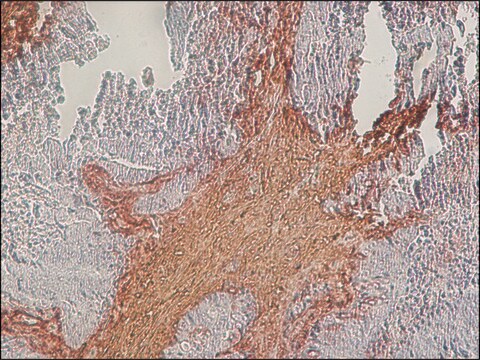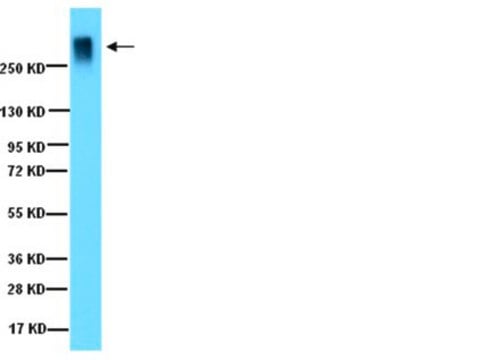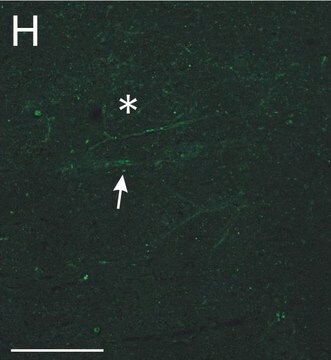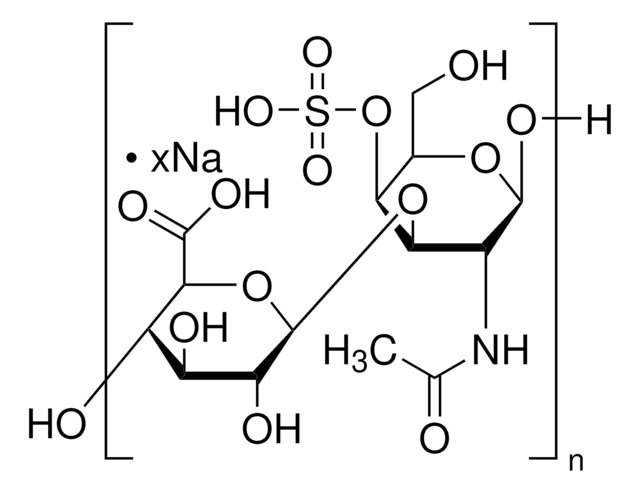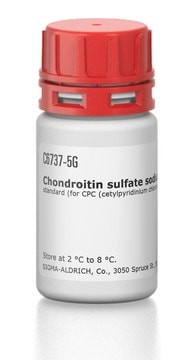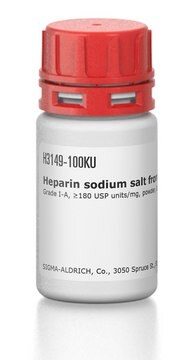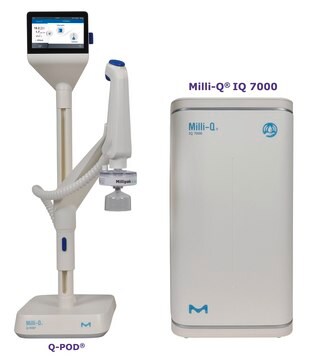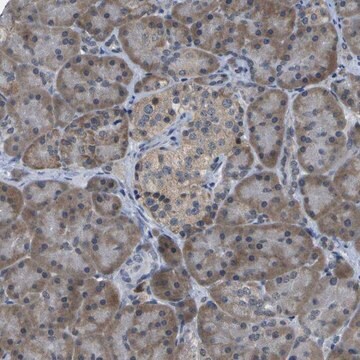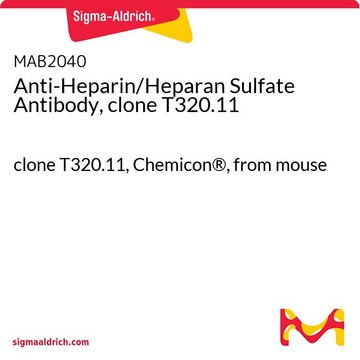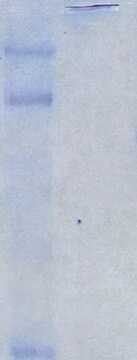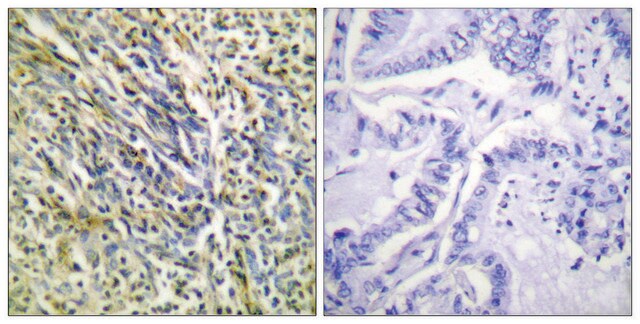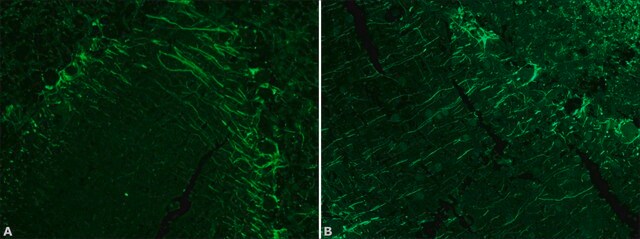C8035
Monoclonal Anti-Chondroitin Sulfate antibody produced in mouse
clone CS-56, ascites fluid
Sinonimo/i:
Chondroitin Sulfate Antibody, Chondroitin Sulfate Antibody - Monoclonal Anti-Chondroitin Sulfate antibody produced in mouse, Cs56 Antibody
About This Item
Prodotti consigliati
Origine biologica
mouse
Livello qualitativo
Coniugato
unconjugated
Forma dell’anticorpo
ascites fluid
Tipo di anticorpo
primary antibodies
Clone
CS-56, monoclonal
Reattività contro le specie
chicken, bovine, mouse, human, pig, rabbit, rat
tecniche
indirect immunofluorescence: 1:200 using bovine mammary gland epithelial (BMGE) cells
microarray: suitable
Isotipo
IgM
N° accesso UniProt
Condizioni di spedizione
dry ice
Temperatura di conservazione
−20°C
modifica post-traduzionali bersaglio
unmodified
Informazioni sul gene
human ... ACAN(176)
mouse ... Acan(11595)
rat ... Acan(58968)
Descrizione generale
This product can be found as purified product that was produced using cell culture hybridoma (SAB4200696)
Specificità
Immunogeno
Applicazioni
- in immunohistochemistry as primary antibody to study of spinal cords and brain cryosections.
- in ELISA and western blot for purification of soluble forms of myelin-associated glycoprotein (MAG) and neural cell adhesion molecule (N-CAM).
- in flow cytometry studies.
- as primary antisera in a study of TGF-β regulation.
Azioni biochim/fisiol
Stoccaggio e stabilità
For extended storage, the solution may be frozen in working aliquots. Repeated freezing and thawing is not recommended. Storage in "frost-free" freezers is not recommended. If slight turbidity occurs upon prolonged storage, clarify the solution by centrifugation before use.
Altre note
SAB4200696 Anti-Chondroitin Sulfate antibody, Mouse monoclonal
clone CS-56, purified from hybridoma cell culture
Esclusione di responsabilità
Non trovi il prodotto giusto?
Prova il nostro Motore di ricerca dei prodotti.
Prodotti correlati
Codice della classe di stoccaggio
12 - Non Combustible Liquids
Classe di pericolosità dell'acqua (WGK)
WGK 1
Punto d’infiammabilità (°F)
Not applicable
Punto d’infiammabilità (°C)
Not applicable
Certificati d'analisi (COA)
Cerca il Certificati d'analisi (COA) digitando il numero di lotto/batch corrispondente. I numeri di lotto o di batch sono stampati sull'etichetta dei prodotti dopo la parola ‘Lotto’ o ‘Batch’.
Possiedi già questo prodotto?
I documenti relativi ai prodotti acquistati recentemente sono disponibili nell’Archivio dei documenti.
I clienti hanno visto anche
Articoli
Glycosaminoglycans are large linear polysaccharides constructed of repeating disaccharide units.
Il team dei nostri ricercatori vanta grande esperienza in tutte le aree della ricerca quali Life Science, scienza dei materiali, sintesi chimica, cromatografia, discipline analitiche, ecc..
Contatta l'Assistenza Tecnica.